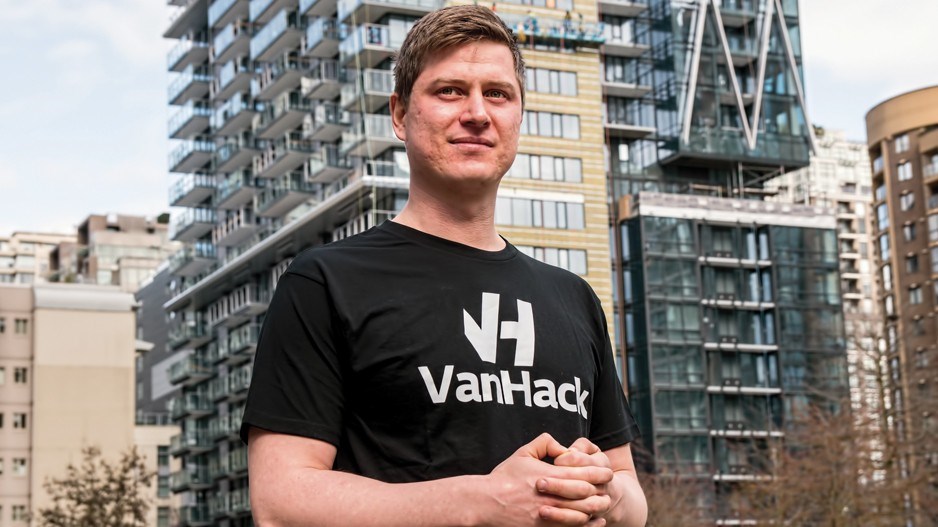While the pandemic has been battering B.C.’s hospitality and tourism sector, March delivered a banner week of business to Ilya Brotzky’s Vancouver-based tech recruitment firm, with 18 new companies tapping its services.
“That was a record for us in terms of number of new companies joining in one week,” said the CEO of VanHack Technologies Inc., whose firm has hooked up more than 600 companies with tech professionals over the last seven years. “It’s been crazy, we have never seen things as busy as they are now.”
VanHack’s surge in business is reflected in Statistics Canada data showing the province added 7,400 jobs in professional, scientific and technical services in February.
And over the past five years Vancouver has added 27,500 tech workers to its labour pool, according to November 2020 research from real estate services firm CBRE Group Inc.
“Because of COVID every company needs to be a tech company, even more so than before,” Brotzky said. “And so a lot more traditional companies are building software as a core product. There’s definitely a shortage locally – there’s just not enough talent. But the fact that companies have to work remotely anyways … the ease of hiring a developer who’s living in Gastown or in Guatemala is the same.”
But Greg Malpass, CEO of Traction on Demand (Traction Sales and Marketing Inc.), said the rapid transition to remote working coupled with increasing demand for talent doesn’t mean B.C. tech companies will suddenly start relying primarily on cheap labour based overseas.
His company, which boasts a workforce of about 800 people, is in the midst of significantly reducing its real estate footprint as employees work remotely. Instead of large offices, the company is setting up coffee-shop-style meeting places in which smaller groups can meet and collaborate.
“Even in our world, customers understand what things cost,” said Malpass, whose Burnaby-based company has hired about 250 workers over the past six months.
“The cost of living in Jaipur is much lower and [a tech worker] would make a lower wage than someone who, let’s say, might be living in Winnipeg. And they also know someone that’s in Toronto might be more expensive. And so customers are smart and savvy enough to say, ‘Well, I know that this is costing you X, therefore you should give me a lower price on that.’”
Brotzky said Canadian companies also have a significant incentive to maintain a local workforce by tapping the Scientific Research and Experimental Development (SR&ED) tax incentive program.
SR&ED (SHRED) allows companies performing any type of R&D work to claim as much as 64% in qualifying expenses.
But the province’s startup ecosystem may soon face additional strains attracting top-level workers following Microsoft Corp.’s (Nasdaq:MSFT) announced plans last month to hire 500 more workers in Vancouver.
“There’s only so many senior developers that are actively looking for jobs, that are open to new opportunities,” Brotzky said. “I’m hearing that offers are not being accepted, candidates are getting multiple offers at the same time, there are just not any applicants for jobs. So I think that the supply and demand is really out of whack.”
Meanwhile, GeoComply Solutions Inc. chairwoman and co-founder Anna Sainsbury said local tech companies will need to get creative to meet the demand for talent and maintain the current rate of growth within the industry.
Her Vancouver cybersecurity firm is embarking on expansion following a significant investment from institutional investors last month.
GeoComply has offices in Ukraine and Vietnam but Sainsbury said the company has also been hiring people in Toronto and Montreal to work remotely.
“There is a huge opportunity to take resources and people from outside of the tech sector and train them on how to work within technology,” said Sainsbury.
“Vancouver is hungry, and we need to create the opportunities for some to potentially retrain, so that they can get into the product development area of tech or look at how we can expedite getting visas for educated and experienced tech resources to relocate.”




